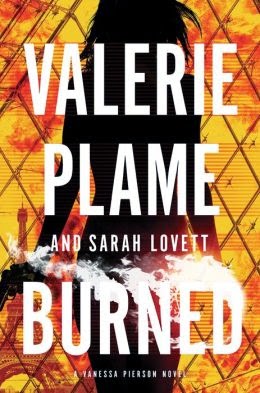Rebecca Makkai is a Chicago-based writer whose first novel,
The Borrower, is a
Booklist Top Ten Debut, an Indie Next pick, an
O Magazine selection, and one of
Chicago Magazine's choices for best fiction of 2011. Her short fiction has been chosen for
The Best American Short Stories for four

consecutive years (2011, 2010, 2009 and 2008), and appears regularly in journals like
Harper's,
Tin House,
Ploughshares, and
New England Review.
Makkai's new novel is
The Hundred-Year House.
From her Q & A with Deborah Kalb:
Q: Why did you decide to have the action in The Hundred-Year House go backward chronologically?
A: When I started writing this, it was all set in the present day (with the plot of what's now the 1999 section -- '99 still feels like the present to me, but wow, I guess that's historical fiction now).
I thought of leaving a lot of the mysteries of the past unexplored, a lot of questions unanswered. I was brushing my teeth one morning when I realized the narrative should actually go back into that past. And since I'd already written much of the first section, it seemed natural that this journey should happen in reverse.
I've always loved backwards narrations, from Martin Amis's Time’s Arrow to the backwards episode of Seinfeld -- and I was amazed at...[read on]
Learn more about the author and her work at
Rebecca Makkai's website,
Facebook page and
Twitter perch.
My Book, The Movie: The Borrower.
The Page 69 Test: The Hundred-Year House.
My Book, The Movie: The Hundred-Year House.
--Marshal Zeringue
 Patrick McCabe is an Irish writer. Known for his mostly dark and violent novels set in contemporary—often small-town—Ireland, McCabe has been twice shortlisted for the Booker Prize, for The Butcher Boy and Breakfast on Pluto.
Patrick McCabe is an Irish writer. Known for his mostly dark and violent novels set in contemporary—often small-town—Ireland, McCabe has been twice shortlisted for the Booker Prize, for The Butcher Boy and Breakfast on Pluto.

























